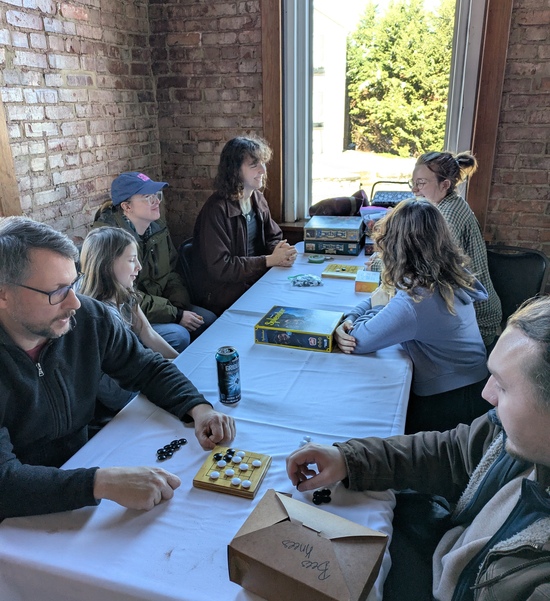Mini Go: Gateway Game |
January 13th, 2025 |
| games, go |
Games you can teach quickly are great in a casual context: people wander over, and you can get them playing right away. And one of my favorite casual games is Go.
If you know Go this is a surprising claim: we're talking about one of the deepest board games humans (and others?) play. It's famously complex, with two decades separating computers surpassing humans in chess and then in Go. And yet, if you shrink the board to where a game just takes a few minutes, it's a great party game:
 not a Go meetup; the board games table at a contradance weekend
not a Go meetup; the board games table at a contradance weekend
The rules of Go are very simple, and it is only their interaction on a large board that gives Go it's depth. I can get someone playing on a 5x5 in a couple minutes, and we'll usually play a few quick games in a row. At this scale people can draw strongly on their general purpose reasoning while they're building up their intuitive sense. Then I'll get them playing someone else who's never played before. Once black starts consistently winning on 5x5, we go to 7x7. And if someone shows up who already knows how to play we can do 9x9.
The game does feel different at the smaller scale, with more focus on capturing and less on territory, but the learning curve is fantastically welcoming. I think the broader Go community has been making a serious mistake in dismissing sizes below 9x9 as not worth playing.
Comment via: facebook, lesswrong, mastodon, bluesky, substack